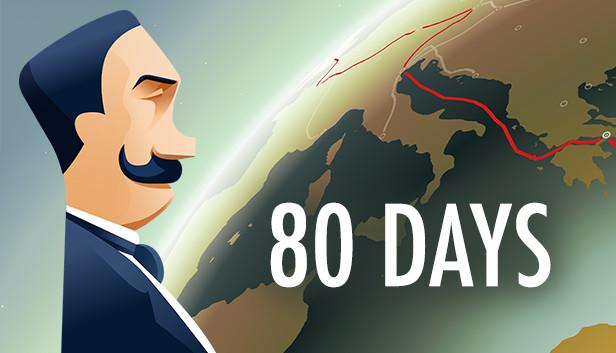“80 Days” was a stunning interactive fiction that followed the journey of Phileas Fogg and the valet Passepartout trying to travel around the world in 80 days. Throughout the game, each decision that I made affected the outcome of the game. How I spent my time and money earlier in the game didn’t seem to make as much impact, but the more I played, the more I could sense how my choices offered me autonomy – directly impacting the branching narrative of the game. The time limit also increased this urgency I had in the game, adding to the aesthetic of discovery throughout the game because of the added constraints.
Yet, I decided to play the game as if there wasn’t any time limit. I wanted to take full advantage of being able to explore as many stories as possible. The different cities, countries and places that I visited on my journey helped teach me about local cultures. However, the framework we are looking at these cultures was defined by the relationship of Fogg and Passepartout.
While playing, I noticed how important it was to purchase valuable resources early on and resell them in other places. Although this was important to the gameplay to help drive money for later explorations, I thought about how even this action of selling wares takes away some agency from the local populations that you’re purchasing from. In a way, if we think about the real-life equivalent, it reminds me of how certain groups will purchase traditional wares or materials for cheap in a foreign country and try to mark it up as more expensive without giving the local artisans a share of the profit. The emphasis on the journey of a white, wealthy British male explorer reinforces the colonialist narrative. The connection between British expansion and this game felt evident to me through the portrayal of local cultures. Non-white cultures could still be represented in stereotypical or reductive ways, especially because the limitations of the game – speed being important – force you to spend less time engaging with a group of people with the ulterior motive of moving on to the next place. Thus, while the mechanic of a time limit makes the game more challenging to players, it also constrains the player’s ability to think deeply and reflect on the local culture of a city they’re visiting.
Additionally, the way that the player acts as a savior in the game, giving aid to others or intervening in local conflicts, can perpetuate the idea of the white savior in the game. Although these actions help encourage the moral behavior of the player, they also reinforce that white intervention is necessary in order to solve problems in local spaces. This reminded me of the talk’s idea that discusses how “the white protagonist must act, and rarely be acted upon,” where as players we are deciding on the behalf of the protagonist. However, for the other players involved, their choices are being acted upon. By having the protagonist choose in the game, the NPCs are dehumanized in comparison to the player’s right to dominate and explore. If I were to change the game, I wonder what it might feel like to play from the perspective of the local people who are trying to overcome adventurers, explorers, or tourists visiting my land. Even in thinking about the characters involved in this game, the fact stands that Fogg’s wealth that allows him to travel the world in 80 days has to come from somewhere. Where could a British explorer find that money in the first place? It seems less likely that a person of a marginalized group in the same world would be afforded the same luxury of time, money, and power to travel freely without any consequence.
“80 Days” was a game that I would love to reimagine and revolutionize beyond the mechanisms of capital and empire.



Good news! 80 day, verne’s novel, is in public domain. It’s fun to reimagine it all…
Hey Amy,
Really enjoyed reading your response and about how intentionally you engaged with the different stories! I thought what you mentioned about the time limit was particularly interesting — I hadn’t noticed before how the fact that there’s a time limit, given the premise of needing to complete the journey in 80 days, actually hinders your ability or even desire to engage and reflect on the local stories and culture. With this being one of the overarching goals of the game, I wonder if this was by design or if it was an unfortunate product of the premise requiring the journey to be completed in 80 days.
It was interesting how you brought up how the buying and selling mechanic is potentially problematic. For me, I also see parallels between this mechanic and stock trading/hedge funds. In the game, we do no work to actually produce the products and arguably do very little good for the world, but we use our time and knowledge to buy and sell the products that other people produce to spin a profit for ourselves. I think wall street has been villainized for acting similalry.